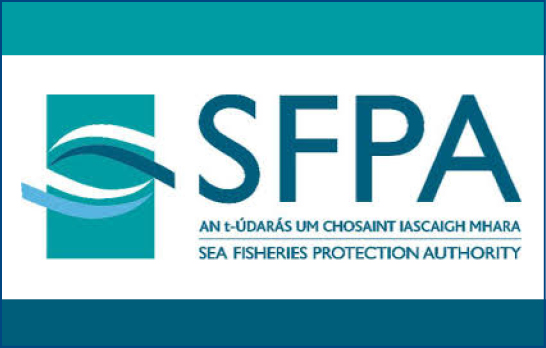- 277 Participants Trained Nationwide
- 178 Electronic Recording & Reporting Systems Upgraded
Clonakilty, 14th November: The Sea Fisheries Protection Authority (SFPA) have conducted an eight-week series of engagements with fishermen, rolling out enhancements to the Electronic Recording & Reporting Systems (ERS) required for fishing vessels and the provision of training on the use of the new system.
Training events were held in September, October and November at various locations across Cork, Donegal, Kerry, Meath, Waterford and Wexford. A total of 277 fishermen participated in the training provided and 178 individual systems were reconfigured by SFPA staff over the course of the programme.
The ERS is a system for recording, reporting, processing, storing and transmitting fisheries data (catch, landing, sales and transhipment) according to the EU rules. The key element of the ERS is the electronic logbook. The electronic logbook is used to record and transmit in a secure way details of fishing operations. The information is managed by the master of the fishing vessel and is transmitted to the Member States authorities where the authentic fishing operation details are kept in a secure database.
Commenting on the successful rollout for the programme, SFPA Executive Chair Paschal Hayes said:
“An important element of our remit is the promotion of compliance with the EU Common Fisheries Policy, sea-fisheries law and seafood safety legislation, to ensure the long-term sustainability of this valuable social and economic resource. The SFPA engages positively with fishermen on a continuous basis, providing the most up-to-date information and training on how best to comply with the rules of the Common Fisheries Policy. I am encouraged at the significant participation amongst the fishing sector in our most recent ERS programme and commend SFPA staff for its effective rollout.
“To ensure the long-term viability of our marine resources for future generations, a collective approach is required with shared responsibility. We were pleased to have the opportunity to engage positively with the fishing sector and we look forward to continued and ongoing interaction, underpinned by an unwavering focus on ensuring sustainability and a shared agreement on the value and importance of sustainable maritime environments.”


Recent Comments